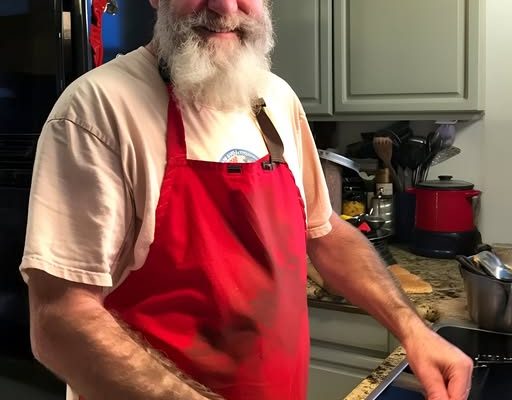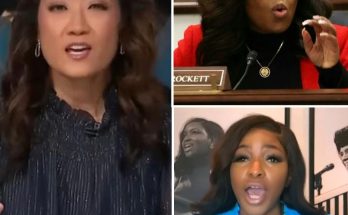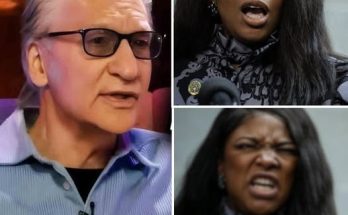Ellie had passed the same bus stop near her workplace for months, always noticing a man named Jeff sitting quietly on a bench. He was in worn clothes but kept them meticulously clean, mending shoes with a gentle focus as though it were his life’s purpose. She found his air of solitude intriguing—he never begged or sought any special attention, and yet there was something compelling about him.
Over time, Ellie began to greet him with a friendly “hello,” which he acknowledged with a polite smile before immersing himself back in his cobbler’s work. One afternoon, acting on pure impulse, she brought him a shoe with a broken heel.
“Think you can fix this?” she asked, surprising even herself.
He lifted his gaze, his eyes warm despite the obvious tiredness. “Sure,” he answered. “Give me about twenty minutes.”
Ellie settled on a nearby bench, watching as Jeff devoted himself to the shoe as though it were the day’s most important task. When he returned it, the repair was so perfect that she couldn’t help but be impressed.
“What’s your name?” she inquired, slipping the shoe back on.
“Jeff,” he replied, carefully tidying his tools.
That simple encounter stayed with her, but it was a bitterly cold evening, just before Christmas, that drew them together in a deeper way. Ellie spotted Jeff through a café window, sitting alone at a corner table, clutching a plain brown-wrapped package. Concern overcame her caution, and she walked in.
“Jeff,” she said softly, “why are you out tonight? Don’t you have somewhere warm to stay?”
He looked up, surprised. “Shelter’s full,” he explained in a quiet voice. “I’ll manage.”
Unable to shake the thought of him in the freezing weather, Ellie blurted out an invitation: “Come stay at my house. Even if it’s just for the night, I have space.”
Jeff hesitated—this time, clearly taken aback by such a generous offer. Yet after some gentle insistence, he agreed.
By the next morning, Ellie awoke to the sound of laughter and the smell of breakfast. Her children were gathered around Jeff in the kitchen as he flipped pancakes, and she couldn’t help but smile at the sight.
“Mom, Jeff makes the best pancakes!” her younger child exclaimed, cheeks sticky with syrup.
Jeff shot her a sheepish glance. “Hope you don’t mind,” he said. “I thought I’d do something to repay your kindness.”
He didn’t stop at breakfast—Ellie soon discovered he had repaired the basement’s leaking faucet and rickety furniture. His quiet competence became a steady, comforting presence in her home.
Later that day, she spoke with her husband. “He’s been so helpful,” she told him, “and the shelters are overcrowded this time of year. Can we let him stay a while longer?”
Her husband nodded in agreement. “Just through the winter,” he offered.
When Ellie shared this with Jeff, he seemed both touched and uncertain. “I don’t want to be a burden,” he said.
“Trust me,” Ellie assured him, “you’re part of our family now.”
Weeks passed, and Jeff integrated into their household seamlessly—cooking, mending, and forging a gentle bond with Ellie’s children. But he also carried an air of melancholy, as if something weighed heavily on his heart. Then one evening, he glimpsed a photograph in the living room: Ellie’s parents, smiling happily. He went pale, his hands trembling.
“Your mom…” he said barely above a whisper.
Alarmed, Ellie asked, “Jeff, what’s wrong?”
Without explanation, he bolted from the room. By the following morning, he was gone, leaving behind only the small brown package he always kept close.
Ellie opened it and found an old snapshot of a younger Jeff, beaming as he cradled a baby in a pink blanket. On the back, the words read: Jeff and Ellie, 1986. Her heart pounded as she picked up the accompanying letter. In it, Jeff revealed he was actually her father. He detailed how he and her mother had been together before circumstances—and his own mistakes—separated them. He’d recognized Ellie immediately upon meeting her but lacked the courage to confess the truth.
Emotions swirling, Ellie confronted her mother, who tearfully admitted the story. For years, she had kept Ellie’s father out of her life, angered and unwilling to forgive him.
Determined to find Jeff again, Ellie searched the city until, one afternoon, she spotted him sitting on that familiar bench by her office. He looked forlorn.
“Jeff,” she said softly, approaching him.
He glanced up, eyes brimming with regret. “Ellie…I’m sorry. I never thought you’d want to see me again.”
She sat down next to him, placing a reassuring hand on his. “Maybe you were right—I didn’t know. But you were here when I needed you, even if we didn’t realize who we were at first. I want you in my life.”
Tears filled Jeff’s eyes. “Do you think you can forgive me?”
“I already have,” she said, pulling him into an embrace.
From that day on, Jeff became a permanent fixture in Ellie’s home, embraced as “Grandpa Jeff” by her children. Though it wasn’t always simple, every step toward reconciliation brought them closer to the father-daughter relationship they’d been denied for so long. In the end, their second chance taught Ellie that sometimes, the family we need finds us when we least expect it—and that forgiveness has the power to reshape not just the future, but also the wounds of the past.



